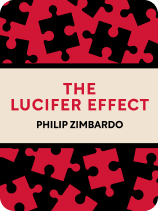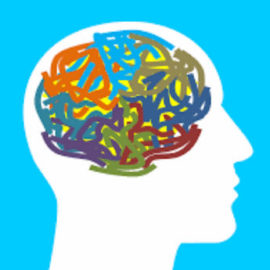

This article is an excerpt from the Shortform book guide to "The Lucifer Effect" by Philip Zimbardo. Shortform has the world's best summaries and analyses of books you should be reading.
Like this article? Sign up for a free trial here .
What is The Lucifer Effect about? What are the main takeaways from Philip Zimbardo’s book?
The Lucifer Effect was written by Philip Zimbardo, the psychologist famous for running the notorious 1971 Stanford Prison Experiment. In it, Zimbardo argues that most of us drastically misunderstand evil’s potential.
Here’s a brief overview of Philip Zimbardo’s book The Lucifer Effect.
The Lucifer Effect by Philip Zimbardo
The world is full of evil—every day, people inflict unimaginable pain and suffering on one another. Our history, too, is bloody. We don’t need to look far into the past to find genocides, murderous wars of conquest, and systematic torture. It’s difficult to imagine what kind of individual could willingly participate in evil like this. Surely, no one we know could ever murder or torture an innocent person, right?
In his book The Lucifer Effect, Philip Zimbardo defines evil as any intentional harm done to innocent people. Most people assume that if someone does something truly evil—on the level of murder, torture, or rape—there must be something uniquely twisted about them. They’re an “evil person,” and it would be difficult or impossible to rehabilitate them. (We’ll call this the “theory of fixed morals,” as it implies that each individual’s moral compass is relatively fixed and slow or impossible to change.)
Zimbardo offers an opposing theory. He argues that any one of us could commit evil if we found ourselves in the wrong situation. (We’ll call this the “theory of circumstantial morals” because it implies that each individual’s moral compass can change rapidly in response to new circumstances.)
In other words, Zimbardo argues that evildoers are ordinary people who find themselves in situations that cause them to disengage their normal sense of morality. Interviews have confirmed that many people who do great evil—terrorists, torturers, those who facilitate genocide—are otherwise psychologically healthy and rational. They’re just like any of us.
Circumstantial Variables That Can Corrupt Morality
If Zimbardo’s theory of circumstantial morals is true and the wrong situation can turn anyone evil, then what circumstances determine whether we do good or evil? In his book The Lucifer Effect, he discusses three main situational variables that can transform any upstanding citizen into a cold-blooded killer.
Variable #1: Identity Cues
One type of situational variable that can cause a drastic shift in morals is the identity cue. Zimbardo explains that identity cues are aspects of the environment that influence our self-image. These can include specific locations, clothing and other props, and the expectations of others.
To a certain degree, it’s normal to adapt our identity to specific circumstances. Zimbardo states that we all take on roles, or temporary identities, in various areas of life. For example, at work, we take on the role of “employee,” and act a certain way that we wouldn’t at home. However, in extreme cases, if we’re ensnared in enough environmental cues placing us in a given role, these roles can take hold of our emotions and influence us to do things we never would have rationally agreed to do.
Variable #2: Social Pressures
Zimbardo explains that social pressures are another major circumstantial variable with the power to influence us to act immorally. When the people around us want us to do something evil, it becomes significantly more difficult for us to resist. These social pressures come in two main forms that often overlap: group pressure and authoritative pressure.
Variable #3: Awareness of Individuality
The final morality-shifting circumstantial variable that we’ll discuss is awareness of individuality. Zimbardo explains that people disengage their sense of morality when they lose the sense that they and the people they are mistreating are unique individuals. This lack of awareness comes in two forms: anonymity and dehumanization.
Powerful Institutions Are at Fault
If the people who do evil are largely at the mercy of circumstances outside of their control, who is ultimately to blame for the evil in the world? Zimbardo argues that we should blame the institutions in power that establish specific circumstances. In his eyes, to effectively curb evil, we have to change the systems that give rise to the situations that encourage it.
According to Zimbardo, these institutions gain power by influencing enough people to accept their ideology—a belief system centered around the highest value that must be achieved by any means necessary. These institutions attempt to perpetuate their ideology and stay in power by relentlessly pursuing their highest value, creating the circumstances conducive to great evil in the process.
For example, Zimbardo extensively criticizes the Bush administration for its role in the War on Terror. He states it created the circumstances that gave rise to the American torture and abuse of Iraqi prisoners of war at the Abu Ghraib prison. He also claims that the Bush administration used the War on Terror and the ideology of “national security above all else” to convince the American population to keep them in power. In their pursuit of national security (brutally interrogating prisoners for information that would help win the Iraq War and prevent future terrorist attacks), they established circumstantial factors that directly led to torture and abuse. In some ways, they recreated, to an extent, the conditions of the Stanford Prison Experiment in the real prisons of Iraq and Afghanistan.
How Can We Resist Circumstantial Influence?
Now that we’ve fully explained Zimbardo’s view of how circumstances and institutions contribute to human evil, we’ll conclude Zimbardo’s book The Lucifer Effect by discussing his tips for navigating this evil-filled world.
On the bright side, Zimbardo notes that everyone has the potential to do something remarkably noble. Zimbardo gives three tips to become a hero yourself:
- Overcompensate when tightening your morals
- Be critical of your group
- Oppose unjust institutions
(Shortform note: Some point out a contradiction in Zimbardo’s argument here: If circumstances are largely responsible for whether or not you do something evil, they should also be responsible for whether or not you do something heroic. By this logic, whether or not you behave heroically is out of your control, and these “tips” won’t help.)

———End of Preview———
Like what you just read? Read the rest of the world's best book summary and analysis of Philip Zimbardo's "The Lucifer Effect" at Shortform .
Here's what you'll find in our full The Lucifer Effect summary :
- How ordinary people can turn into heartless killers
- Insights and criticisms of the Stanford Prison Experiment
- Tips on how to resist circumstantial influences






